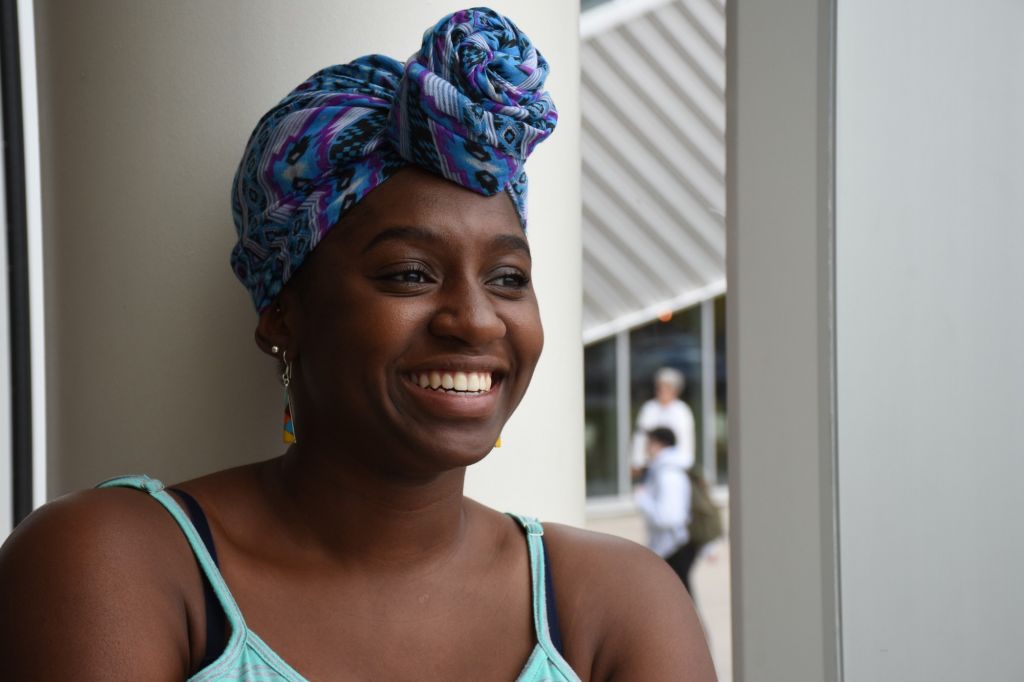It is hard to imagine Student Association President Deijanelle Simon was once a very unhappy student.
She began her academic endeavors at the University of Ottawa where she studied French literature but quickly became disillusioned with the program and was unmotivated.
Her decision to enroll at Algonquin College stemmed from a curiosity about a school that was advertised all over the city. By the end of her first week of classes as a marketing and communications management student, she knew she had made the right decision.
“Every single one of my teachers spoke to the fact that they were here for my success and wanted me to succeed,“ Simon recalled.
Her subsequent choice to run as a Student Association president was ignited after witnessing her teachers continue that unwavering support even after a difficult strike last year.
“The decision happened after coming back from the strike and how my teachers continued the support,” said Simon. “If this is the kind of community this college upholds then I want to be a part of that and I want to help students who felt like me who are super discouraged and don’t want to be here and get them to a point where they want to be a part of the school and join in.”
On April 6, 2018, Simon won the election with a platform that would prioritize policies for physical and mental health on campus, transparency among the board of directors and better ideas to bridge the gap between students and alumni.
Simon says her best quality to bring to her position is her ability to rally the board of directors to a decision.
“I’d like to think I am pretty level-headed. We have an incredibly diverse board and we all have such different views and opinions,” remarked Simon. “In terms of my position, I am able to sit back and kind of see where everyone is coming to –and not make everyone have the same opinion but manage everyone to come to an agreement.”
One priority for the board of directors this academic year includes transparency. According to Simon, this can be achieved through the strengthening of existing avenues of democratic student engagement.
“We really wanted to push for a stronger class rep system. We felt like it was a really good area to increase value and have that link to the student body because we’re just eight people we can’t really reach 18,000 plus students,” said Simon.
Students may also be happy to know the board prioritized technology as an important point of policy which includes improvements to the campus Wi-Fi and the axing of the institutional pay model that hinders student choice over to buy textbooks or not.
“Last year’s board pushed for it because the students aren’t using textbooks they are paying for.”
This advocacy for more student options also extends to mental and physical health on campus which is also a main priority for the board this year.
“Mental health on campus, making sure we have the resources and reaching out to students so they know where to go and get help if they need it. Know that we’re open and that we have safe spaces.” said Simon.
Fundamentally, Simon believes in the value of community and working collectively to get things done.
“I think it’s really important especially in this day and age where there are so many diversities — everyone has an opinion about something and realizing working together is going to be so much better in the end.”


